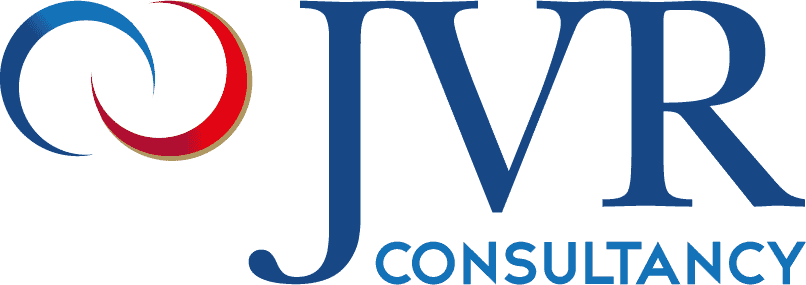JVR Consultancy helps businesses navigate the new EU Artificial Intelligence Act. Ensure your AI practices are compliant and ethical. Contact JVR Consultancy today!
The EU AI Act: A Gamechanger for Responsible AI in Europe
The European Union (EU) has taken a significant step towards shaping the future of Artificial Intelligence (AI) with the landmark EU Artificial Intelligence Act (AI Act), passed in March 2024. This comprehensive regulation aims to ensure the safe, ethical, and trustworthy development and deployment of AI across the European bloc.
This article explores the key aspects of the AI Act, providing businesses and individuals with a clear understanding of its implications.

Understanding the AI Act: A Risk-Based Approach
The AI Act categorises AI applications based on their potential risk:
- High-Risk AI: Systems posing significant risks to health, safety, fundamental rights, or the environment fall under this category. Examples include AI used in critical infrastructure, autonomous vehicles, and facial recognition for law enforcement.
- Limited-Risk AI: AI applications with lower inherent risks, such as chatbots or basic spam filters, are subject to less stringent regulations.
- Acceptable AI: AI applications deemed generally low-risk, like video games or music recommendation systems, face minimal regulatory requirements under the Act.
The level of compliance obligations varies depending on the risk category.
Key Provisions of the AI Act: 10 Things You Need to Know
Here are ten crucial aspects of the AI Act that businesses and individuals should be aware of:
- Transparency and Explainability: The Act emphasises transparency in AI development and decision-making. High-risk AI systems will need to be explainable, allowing users to understand how they arrive at decisions.
- Human Oversight: The AI Act prioritises human oversight and control over AI systems. Businesses deploying high-risk AI will need robust governance frameworks to ensure human intervention when necessary.
- Ban on Certain Practices: The Act prohibits specific AI applications deemed highly risky, such as social scoring and manipulative AI that exploits user vulnerabilities.
- Data Governance: High-risk AI systems require robust data governance measures. This includes using high-quality, diverse datasets and mitigating potential biases within the data.
- Risk Assessments and Management: Businesses deploying high-risk AI must conduct thorough risk assessments and implement measures to mitigate potential harms.
- Rights of Individuals: The Act grants individuals the right to lodge complaints about AI decisions and request explanations for outcomes affected by high-risk AI systems.
- Regulatory Sandboxes: The Act encourages the creation of national regulatory sandboxes to facilitate the testing and development of innovative, low-risk AI applications.
- Conformity Assessments: High-risk AI systems will require conformity assessments to ensure they comply with the Act’s requirements.
- Registration: High-risk AI systems will need to be registered in a centralized EU database for better oversight and traceability.
- Phased Implementation: The Act has a phased implementation timeline. While some provisions apply immediately, others will take effect over the next 24 to 36 months.
The Road Ahead: Embracing Responsible AI in Europe
The EU AI Act sets a global precedent for regulating AI development and deployment. By prioritizing safety, fairness, and transparency, the Act aims to foster a future where AI benefits both businesses and society.
Here’s how businesses operating in the European market can prepare for the AI Act:
- Conduct Risk Assessments: Evaluate your existing and planned AI applications to determine their risk classification under the Act.
- Develop Compliance Strategies: Develop a comprehensive compliance strategy to ensure your AI practices align with the Act’s requirements.
- Invest in Explainable AI: Focus on developing explainable AI systems, particularly for high-risk applications, to comply with transparency mandates.
- Implement Data Governance Frameworks: Establish robust data governance frameworks to ensure responsible data collection, storage, and usage for AI purposes.
JVR Consultancy can help your business navigate the complexities of the EU AI Act. We offer a range of services, including AI risk assessments, compliance audits, and the development of responsible AI practices. Contact JVR Consultancy today and ensure your AI ventures thrive within the new regulatory landscape.
The Algorithmic Tug-of-War: Who’s Accountable When AI Goes Wrong?
AI mistakes: Who’s to blame? This article explores the complex issue of AI accountability, examining developers, data providers, users & legal landscapes. Unveiling the EU’s new AI Act & how JVR Consultancy can guide your business.
The Data Balancing Act: AI and Privacy in the Age of Information
AI & Privacy: Can we have both? This article explores the challenges of data collection for AI & strategies for responsible data use. Learn how to safeguard privacy & comply with regulations.
Nationwide Presence
26 national support locations throughout the UK. See Office Locations.
Fixed Fee Payments
There are no hidden charges, and what you see is what you pay.
Free Gap Analysis
Assess the difference between your business performance & your goals.
Audit Support
Supporting businesses with upcoming compliance audits. FAST TRACK priority support also available.
Ongoing Support
JVR offer Ongoing Support & Maintenance for peace of mind.
Customer Service
Our customer reviews are a testament to our work & the results we achieve.
Experience
Vast experience in developing compliant integrated management systems
Thorough Process
We write procedures, policies & associated documentation.
Bespoke
Our services are tailored to meet individual company requirements.
Audit Support
Get FAST TRACK Audit Support with JVR Consultancy Today. Click here to find out more.
Free Remote Gap Analysis
Book a Free Remote Gap Analysis during Covid-19 for your business. To learn more, why not read our What is Gap Analysis blog article and understand how a Gap report would benefit your company.
Related Articles
More reasons to choose JVR Consultancy for Compliance & Risk Management











